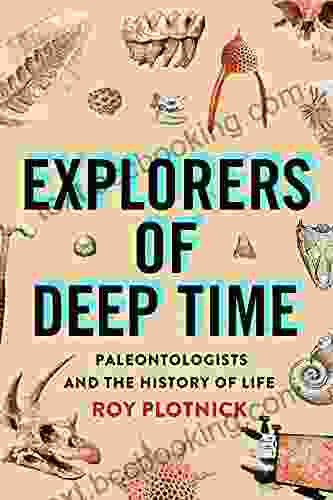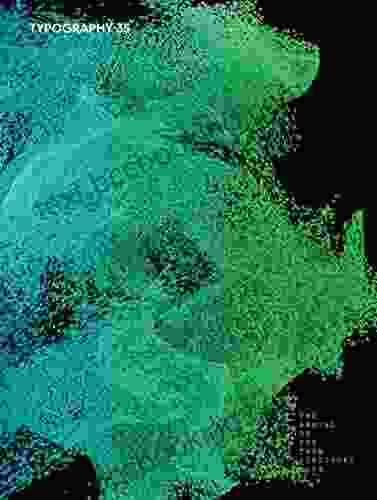Unearthing the Past: Paleontologists and the History of Life

The history of life on Earth is a vast and complex tapestry, woven over billions of years. Paleontologists, the scientists who study the fossil record, play a crucial role in deciphering this enigmatic tapestry, piecing together the puzzle of past life. From the earliest microbes to towering dinosaurs and the rise of humans, this article explores the captivating world of paleontology, uncovering the methods and discoveries that have illuminated our understanding of the history of life.
The Fossil Record: A Window into the Past
The fossil record is the primary source of information for paleontologists, preserving the remains or traces of ancient organisms. These fossils, ranging from tiny spores to massive dinosaur bones, offer glimpses into the diversity and evolution of life. By examining the structure, composition, and distribution of fossils, paleontologists reconstruct the appearance, behavior, and environments of extinct species.
4.4 out of 5
| Language | : | English |
| File size | : | 5160 KB |
| Text-to-Speech | : | Enabled |
| Screen Reader | : | Supported |
| Enhanced typesetting | : | Enabled |
| Word Wise | : | Enabled |
| Print length | : | 471 pages |
The formation of fossils begins with the preservation of organic matter under specific conditions. Rapid burial in sediments, such as mud or sand, protects the remains from decay and scavengers. Over time, minerals replace the organic material, creating a stone replica of the original organism. Fossils can also form when organisms leave impressions or traces in their environment, such as footprints, burrows, or ripple marks.
Methods of Paleontology
Paleontologists employ a diverse array of methods to study the fossil record. Fieldwork involves excavating fossils from rock formations, carefully removing them to minimize damage. Once collected, fossils are analyzed in the laboratory using techniques such as microscopy, X-rays, and chemical analysis.
Microscopy allows paleontologists to examine the microscopic structure of fossils, revealing details about their cellular organization and growth patterns. X-rays and other imaging techniques provide cross-sectional views of fossils, helping to reconstruct their internal anatomy. Chemical analysis determines the composition of fossils, providing insights into the biochemistry of extinct organisms.
Unraveling the History of Life
Paleontological discoveries have revolutionized our understanding of the history of life. Through the study of fossils, scientists have identified and classified thousands of extinct species, charting the evolutionary relationships between different groups of organisms.
The fossil record has revealed that life on Earth began approximately 3.5 billion years ago with the emergence of simple, single-celled microorganisms. Over billions of years, these early life forms evolved into a bewildering array of species, including the trilobites, the ammonites, and the dinosaurs.
The extinction of the dinosaurs, 65 million years ago, paved the way for the rise of mammals, including our own species, Homo sapiens. By studying the fossil record, paleontologists have gained insights into the factors that have shaped the history of life, including mass extinctions, climate change, and competition between species.
The Role of Paleontology in the Modern World
Beyond its historical significance, paleontology plays a crucial role in our understanding of the modern world. By studying past climates and ecosystems, paleontologists can help us predict future environmental changes. For example, the examination of ancient fossil-bearing rocks can provide insights into past sea levels, climate patterns, and the distribution of natural resources.
Paleontology also contributes to the development of new technologies. The study of fossilized remains has led to advancements in medical imaging, drug discovery, and the development of new materials. By understanding the evolutionary history of life, scientists can gain inspiration for innovative solutions to present-day challenges.
Paleontologists are the guardians of our planet's past, the historians of life on Earth. Their discoveries illuminate the grandeur and complexity of the natural world, providing us with a profound appreciation for our place in the grand scheme of things. From the humble beginnings of microbial life to the rise and fall of empires, the fossil record offers a captivating narrative that continues to inspire and inform us today. As paleontological research continues to unfold, we can expect to gain even deeper insights into the enigmatic tapestry of the history of life.
4.4 out of 5
| Language | : | English |
| File size | : | 5160 KB |
| Text-to-Speech | : | Enabled |
| Screen Reader | : | Supported |
| Enhanced typesetting | : | Enabled |
| Word Wise | : | Enabled |
| Print length | : | 471 pages |
Do you want to contribute by writing guest posts on this blog?
Please contact us and send us a resume of previous articles that you have written.
 Book
Book Novel
Novel Page
Page Chapter
Chapter Text
Text Story
Story Genre
Genre Reader
Reader Library
Library Paperback
Paperback E-book
E-book Magazine
Magazine Newspaper
Newspaper Paragraph
Paragraph Sentence
Sentence Bookmark
Bookmark Shelf
Shelf Glossary
Glossary Bibliography
Bibliography Foreword
Foreword Preface
Preface Synopsis
Synopsis Annotation
Annotation Footnote
Footnote Manuscript
Manuscript Scroll
Scroll Codex
Codex Tome
Tome Bestseller
Bestseller Classics
Classics Library card
Library card Narrative
Narrative Biography
Biography Autobiography
Autobiography Memoir
Memoir Reference
Reference Encyclopedia
Encyclopedia Ted Ngoy
Ted Ngoy Susan Mayse
Susan Mayse Martise Moore
Martise Moore Shirley Blancke
Shirley Blancke Marsha Vanwynsberghe
Marsha Vanwynsberghe Marko Cabric
Marko Cabric Odessa Gillespie Black
Odessa Gillespie Black Rachel Atwood
Rachel Atwood Susana Wald
Susana Wald Matt Alt
Matt Alt Stacy Eaton
Stacy Eaton Matthew Continetti
Matthew Continetti Marshall H Klaus
Marshall H Klaus Martin Gilbert
Martin Gilbert Phuoc Thi Minh Tran
Phuoc Thi Minh Tran Sonja Schwartzbach
Sonja Schwartzbach Marilyn Easton
Marilyn Easton Reinhard Kleist
Reinhard Kleist Troy C Wagstaff
Troy C Wagstaff Mary H K Choi
Mary H K Choi
Light bulbAdvertise smarter! Our strategic ad space ensures maximum exposure. Reserve your spot today!

 Jonathan HayesThe Baby First Guide: Embark on a Stress-Free Weaning Journey for Healthy...
Jonathan HayesThe Baby First Guide: Embark on a Stress-Free Weaning Journey for Healthy...
 Corbin PowellDelectable Recipes for Scones, Cakes, Sandwiches, and More from New York's...
Corbin PowellDelectable Recipes for Scones, Cakes, Sandwiches, and More from New York's... Leslie CarterFollow ·2k
Leslie CarterFollow ·2k David BaldacciFollow ·8.8k
David BaldacciFollow ·8.8k Harold PowellFollow ·8.6k
Harold PowellFollow ·8.6k Ted SimmonsFollow ·19.1k
Ted SimmonsFollow ·19.1k Philip BellFollow ·12.9k
Philip BellFollow ·12.9k Aleksandr PushkinFollow ·19.9k
Aleksandr PushkinFollow ·19.9k Jules VerneFollow ·15.6k
Jules VerneFollow ·15.6k Samuel WardFollow ·3.5k
Samuel WardFollow ·3.5k

 Larry Reed
Larry ReedGwendy's Final Task: A Thrilling Conclusion to a Timeless...
Prepare to be...

 Victor Turner
Victor TurnerHow FDR Defied Polio to Win the Presidency
Franklin D. Roosevelt is...

 Edwin Cox
Edwin CoxWinner RGS BBC Journey of a Lifetime Award: An Inspiring...
In the heart of the world's...

 Griffin Mitchell
Griffin MitchellEverything You Need to Know, You Learned From Mister...
Mister Rogers' Neighborhood was a beloved...

 Beau Carter
Beau CarterSeasons of Terror: A Spine-Tingling Odyssey into the...
In the realm of horror...
4.4 out of 5
| Language | : | English |
| File size | : | 5160 KB |
| Text-to-Speech | : | Enabled |
| Screen Reader | : | Supported |
| Enhanced typesetting | : | Enabled |
| Word Wise | : | Enabled |
| Print length | : | 471 pages |










